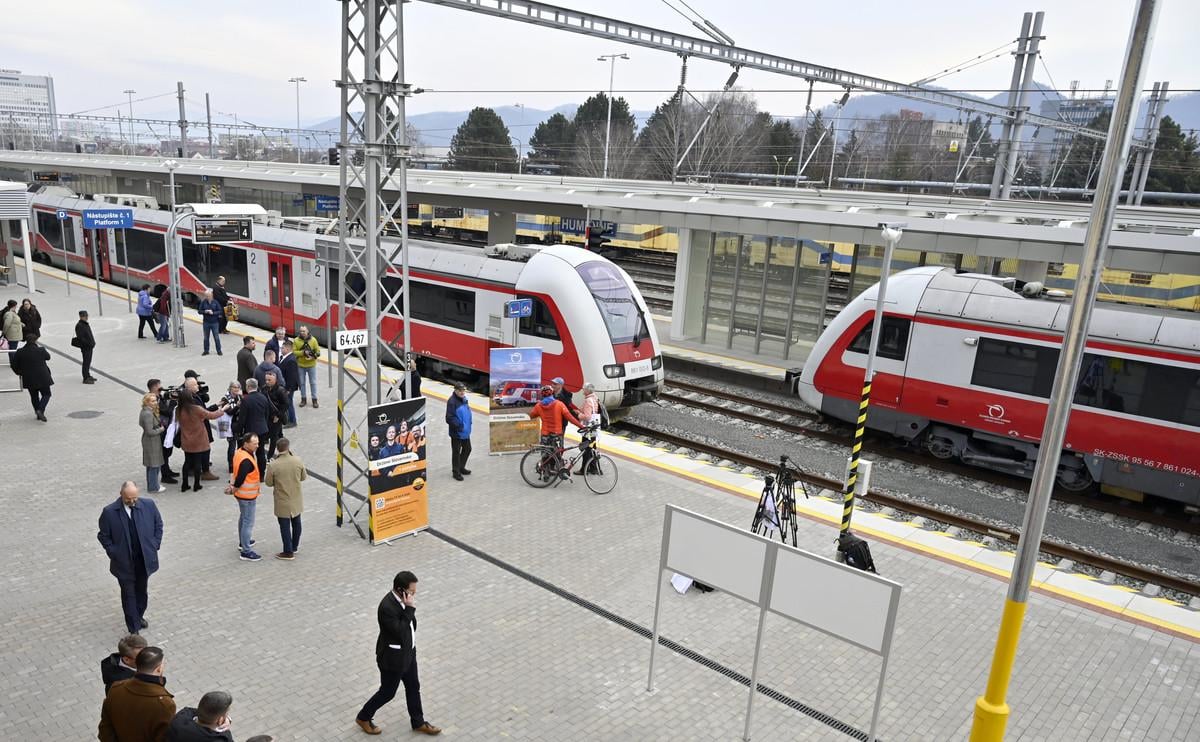Martin, a 13-year-old boy from Ťahanovce, near Košice, took his own life on Wednesday, March 5, by jumping in front of a train, according to Peter Weisenbacher, director of the Human Rights Institute and co-founder of Rainbow Pride.
In a press release from March 13, Weisenbacher stated that, based on information from a person close to the boy who wished to remain anonymous, it was clear that the suicide was the result of homophobic bullying.
“Everyone is afraid to say it, but it is evident that he did this because of bullying and fear of being different. The boy was searching for his identity; he was gentle, perceived by some as effeminate,” Weisenbacher said. “He was often called a ‘faggot’, ‘queer’ and ‘tranny’.”
Police have reacted to media reports suggesting that bullying may have played a role in the tragic death of this 13-year-old boy, stating that they are investigating the case.
Meanwhile, the city of Košice denied allegations that the boy had been bullied at school.
“Following an internal review, the school leadership unequivocally rejects any speculation about possible bullying at this institution,” said Košice city spokesperson Dušan Tokarčík, as quoted by TV JOJ.
Weisenbacher called on all democratic political parties to push for a thorough investigation into the circumstances that led to the boy’s death.
The coalition spreading hate
The opposition party Progressive Slovakia urged politicians in power on March 17 to stop spreading homophobia and intolerance towards LGBT+ people.
“Top politicians talk about perversions, suggest LGBT+ people need psychiatric treatment, blame them for Europe’s decline, and rant about some imaginary ideology. Others go as far as plastering Slovakia with billboards attacking queer people. I do not expect this coalition to improve the situation for LGBT+ people, but at the very least, they must stop endangering children,” said Progressive Slovakia MP Lucia Plaváková, herself a member of the LGBT+ community. “The spread of this hatred comes at a high price — it costs lives.”
Two queer people were murdered by a radicalised student outside a gay venue in Bratislava in 2022.
The Government Office recently hosted a discussion on “respecting different opinions”, where conservative journalist Jaroslav Daniška made an incendiary claim: that children from same-sex and divorced families are routinely subjected to sexual abuse.
Last September, Plaváková clashed with nationalist Slovak National Party (SNS) leader and parliamentary vice-chair Andrej Danko, who expelled her from the debating chamber for displaying queer stickers on her laptop. The current sports and tourism minister, Rudolf Huliak, has also publicly dismissed Plaváková, stating that he does not consider her to be a woman, and has never apologised for the remark.
Progressive Slovakia MP Ingrid Kosová highlighted the lack of school psychologists, noting that one psychologist typically serves around 300 students. She argued that teachers are focused on academic performance and testing results, leaving little time to address classroom dynamics or foster student relationships.
The Christian Democratic Movement (KDH), a key opposition partner of the Progressive Slovakia party, appears to have a persistent issue with LGBT+ rights. At a recent lecture in Bratislava, former KDH MP Renáta Ocilková propagated the notion that homosexuality is merely a passing phase, an idea widely discredited by medical and psychological experts.
Funds for LGBT+ organisation cancelled
Politician Janka Jányová of Smer accused Progressive Slovakia of using the tragedy for social media attention and for dividing society by bringing LGBT+ issues into public debate.
“No one in this government has a problem with people from this community,” Jányová said. “But all society is fed up with your constant imposition of sick ideological views and attempts to enforce them into everyday life.”
The LGBT+ community has no rights in Slovakia.
Moreover, Prime Minister Robert Fico (Smer) has proposed constitutional amendments to affirm the existence of only two genders, prohibit same-sex couples from adopting children, and ban gender transition. His government has also revoked grants worth €100,000 for the LGBT+ organisation Inakosť, intended to fund professional support services, community activities, and human rights protection. More recently, Slovakia’s Justice Ministry has rejected a €30,000 grant intended for specialist support services for victims of crime. The funding, which had been allocated annually since 2022, was crucial for inPoradňa, a counselling service providing legal and psychological aid to LGBT+ people who have experienced violence, bullying or other crimes related to their sexual orientation.
President Peter Pellegrini, Fico’s former protégé, who has long been the subject of speculation regarding his own sexuality, has so far remained silent on the recent tragedy.
In a statement, Slovakia’s justice minister, Boris Susko (Smer), responded to the suicide of the 13-year-old boy by condemning bullying and hate speech.
“If the investigation confirms reports of bullying, it is horrifying that we fail to realise the weight of words, which can drive others to desperate acts,” Susko said. “Any expression of hatred, humiliation, or ridicule is condemnable.”
His remarks come despite his party’s track record of stoking anti-LGBT+ sentiment.



 A railway station in Humenné, eastern Slovakia (source: TASR - Roman Hanc)
A railway station in Humenné, eastern Slovakia (source: TASR - Roman Hanc)